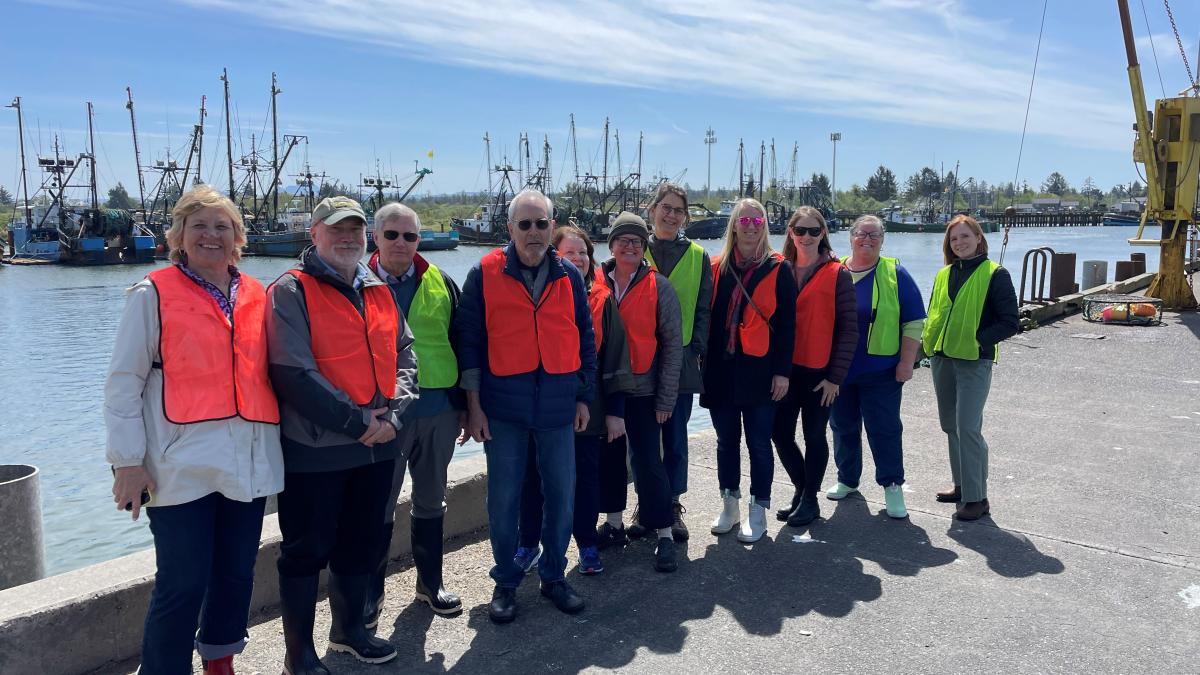
Who we are
Conducting research for healthy workers, strong communities and productive agriculture.
The PNASH Center could not accomplish our goals without the support of our Scientific Advisory Committee (SAC). Scientific advisors guide the Center and projects on effectiveness, directions of future work/science, project methods and results interpretation, and relevance of activities to regional and national policies and initiatives.
We have been fortunate to have the expertise of the following advisors for the first two years of our award cycle. Many have been involved with PNASH for several years. They have elected to step down from this committee, but we hope to continue engaging them in our work. On behalf of the PNASH Center and community, we extend our genuine gratitude for their service on the committee!
- Kent Anger, PhD, Professor, Oregon Institute of Occupational Health Sciences; Professor, OHSU-PSU School of Public Health; Associate Director for Applied Research, Oregon Institute of Occupational Health Sciences
Expertise: Psychology, Occupational Health and Safety, Total Worker Health - Howard Kipen, MD, MPH, Professor, Rutgers Departments of Public Health, Family Medicine and Internal Medicine; Director, Clinical Research and Occupational Medicine Division
Expertise: Occupational Medicine, Multiple Chemical Sensitivities, Indoor Air Quality - Karen Lewis, MS, Director of Extension Agriculture and Natural Resources, Washington State University
Expertise: Precision Agriculture, Robotics, Education and Extension Services - Linda McCauley, PhD, RN, FAAN, FAAOHN, Dean and Professor, Nell Hodgson Woodruff School of Nursing, Emory University
Expertise: Occupational Health, Health Interventions, CBPR, Vulnerable Populations (Farmworkers & Children)
We would also like to introduce and welcome our incoming scientific advisors. They bring a range of perspectives and experience, and we look forward to working with each of them.
Alan Davis, CSP, OEC brings over three decades of experience in occupational safety and health across diverse industries, including manufacturing, maritime, healthcare, and higher education in addition to his experience in agriculture, forestry, and emergency services. Mr. Davis's commitment to safety began early in his life in central North Carolina, where he grew up on a farm with diverse crops and livestock. He earned a bachelor's degree in occupational safety and health from North Carolina A&T State University. In 2002 he joined American Seafoods, where he currently oversees safety, health, and security for a fleet of large catcher processors and longliners. During the COVID-19 pandemic, Mr. Davis co-founded the Alaska Fishing Industry Safety and Health Committee (AFISH) to develop best practices and protocols, safeguarding workers while ensuring the continued production of Alaska’s vital seafood supply. Mr. Davis has also represented the fishing industry on numerous committees, including the U.S. Coast Guard Commercial Fishing Vessel Safety Committee, the Maritime Advisory Committee for OSHA, and various NIOSH panels.
Dr. Leslie Hammer is the Director of the Oregon Healthy Workforce Center, Total Worker Health® center of excellence and the Associate Director for Applied Research in the Oregon Institute of Occupational Health Sciences, Oregon Health & Science University. She is also Professor Emerita at Portland State University. She is a leading international expert on workplace mental health, supervisor supportive behaviors, work and family, and occupational stress. Dr. Hammer specializes in the mental and physical health effects of supportive supervision at work and has extensive experience in designing, implementing, and evaluating worksite interventions and evidence-based supervisor training. Her work with marginalized communities has focused on farmworkers. She is a Fellow of the American Psychological Association, the Society for Industrial and Organizational Psychology, and the European Academy of Occupational Health Psychology. She is also the Founding President of the Society for Occupational Health Psychology.
Dr. Lav R. Khot is a distinguished leader in the field of precision agriculture. He serves as the Director of the Agricultural Weather Sensing Network at Washington State University (WSU), where he plays a vital role in providing crucial weather data and decision support to the state's agricultural community. As an Associate Professor of Precision Agriculture, Dr. Khot's innovative research focuses on integrating advanced sensing and automation technologies to improve the efficiency of irrigated and tree fruit crop production. With a Ph.D. in Agricultural and Biosystems Engineering, he leads transformative projects that utilize IoT, cyber-physical systems, and advanced computing to offer actionable insights for protecting crops from abiotic stressors. His program also conducts research and education on the automated and precise chemical application technologies.
Dr. Diane Rohlman is the Associate Dean of Faculty in the College of Public Health and a professor in the Department of Occupational & Environmental Health at the University of Iowa. She also holds the Endowed Chair in Rural Health and Safety. She directs the Healthier Workforce Center of The Midwest, as well as the Agricultural Safety and Health Training Program. Her research focuses on the health effects of occupational and environmental exposures, with emphasis on the increased workplace risks faced by younger employees. Her studies have examined agricultural workers in the United States and around the world, including research on the effects of pesticide exposure on adolescents and their developing nervous system. She also has studied how lifestyle factors and mental health can impact safety on the job, as well as the effect of interventions directed toward supervisors and workplace policies.


